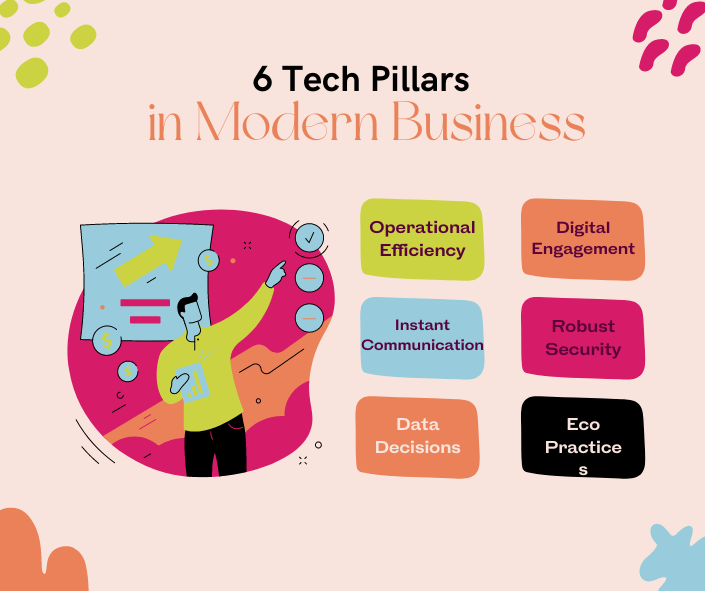Digital Dynamics: The Pivotal Role of Technology in Contemporary Business
The intersection of technology and business is not a novel concept; however, the intensity, depth, and rapid pace of transformation in today’s era is unprecedented. As companies tackle the challenges and prospects of the 21st century, technology has transitioned from a simple tool to a pivotal driver of strategy, operations, and competitive edge. Let’s delve into the transformative role of technology in contemporary business practices.

1. Streamlining Operations
Advancements in automation and artificial intelligence, in particular, have considerably boosted operational efficiency. Tasks that once demanded manual labour can now be completed in a fraction of the time, cutting costs and human error. Systems such as ERP (Enterprise Resource Planning) flawlessly combine various business processes, assuring fluid and synchronised operations across divisions.
2. Facilitating Real-time Communication
The days when businesses relied on letters or faxes to convey essential information are long gone. Modern platforms like Slack, Zoom, and Teams have facilitated real-time communication across the globe. This promptness eliminates geographical barriers, fosters collaboration, and enables businesses to respond rapidly to evolving situations.
3. Enhancing Data-driven Decision Making
Contemporary businesses can access a wealth of data. Technology has enabled the collection, analysis, and insight extraction from this data on an unmatched scale. Tools such as Big Data analytics, Machine Learning, and Business Intelligence platforms empower companies to make informed choices, forecast trends, and adjust strategies based on live feedback.
4. Revolutionising Marketing and Customer Engagement
Technology-driven digital marketing allows businesses to engage audiences more accurately on platforms they frequent. From social media adverts to email marketing drives, technology facilitates tailored and scalable engagement. Additionally, Customer Relationship Management (CRM) systems enable businesses to nurture and deepen ties with their clients by centralising customer data and automating communications.
5. Strengthening Security and Compliance
With the surge in sensitive data stored online, technology’s role in guaranteeing security is paramount. Cutting-edge encryption, biometric verification, and blockchain are just a few tech breakthroughs safeguarding businesses from threats. Concurrently, tech-oriented solutions guide businesses in complying with the constantly shifting regulatory landscape, ensuring they remain compliant.
6. Encouraging Sustainable Practices
Green technological solutions, from energy-saving systems to digital tools that reduce paper consumption, support businesses in adopting eco-friendly practices. This doesn’t just benefit our planet but also aligns with an expanding segment of environmentally-conscious consumers, thus bolstering brand reputation and loyalty.
Reflecting on the Journey
For businesses navigating the complexities of the modern marketplace, technology is not merely a facilitator; it’s an imperative. It underpins growth, innovation, and agility. As technology forges ahead, those businesses that embrace, adjust, and innovate in tandem will undoubtedly lead in the coming decades.



















